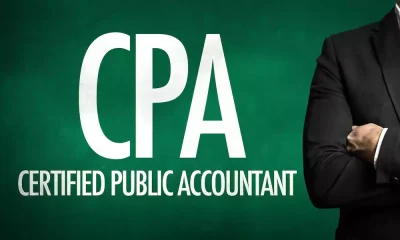Education
What Is The Career Scope Of A Commerce Degree?

The field of commerce needs no introduction. It is the lifeline of any country as it contributes to economic development and creates employment opportunities. Commerce drives revenue generation by linking producers with consumers. The field is extremely vast and has spawned many new fields such as commercial operations and commercial banking.
A degree in commerce can provide you with unique perspectives to understand the world of finance and business operations. It prepares you for a global career by giving you a solid foundation in subjects like international trade, global economic policies and world economic forums such as the World Bank.
Read on to find out more about the subjects and the various career opportunities that follow a degree in commerce.
What do you mean by commerce?
Commerce refers to the trading and distribution aspect of any business. It is the exchange of goods, capital and services between two individuals or businesses. It is a macro-science which encompasses all transactions of a particular product or service in an economy.
Commerce deals with economic transactions on a large scale. It widens domestic markets and plays an important role in the economic development of a country.
Career scope of a commerce degree
If you want to pursue a career in commerce, there are several alternatives open for you. You can enter the industry after completing a bachelor’s degree or B.Com in Canada or other foreign countries. You can also start your commercial career after pursuing a master’s degree.
Commerce degrees equip you with a wide range of managerial skills and a solid foundation in subjects such as accounting, economics, taxation and business operations. Here are the jobs that you can pursue with a degree in commerce.
- Accountants: This is one of the most popular career options for commerce graduates. The job requires an in-depth knowledge of accounting methods, balance sheets, journal entries, and accounting systems. Accountants are also responsible for preparing financial reports and statements. They must also possess knowledge in topics like financial accounting and tax accounting.
- Financial analysts: These people analyse various demographics, marketing trends and economic factors and their impact on businesses. They are responsible for understanding how organisations invest their resources and assess if these investments are financially feasible. Additionally, they do financial modeling by creating a model that represents a real-world financial situation. There are many financial models that can be applied for a range of uses like making investments, pricing securities, and undergoing mergers and acquisitions. They must make financial recommendations to the upper management for the growth of the companies.
- Business managers: These managers are responsible for ensuring that all departments in a business run efficiently. They create and implement business plans and ensure that organisational expenses do not exceed the operational budgets.
- Economic research analysts: For this profession, you would need to have qualitative, analytical, logical and problem-solving skills. You will be responsible for researching, assessing, inferring and presenting financial data for making business strategies.
- Marketing specialists: These people help organisations in advertising their products. They assess different advertisement campaigns for their economic feasibility. You must possess the intuition to assess the needs of customers and advise the designing team accordingly.
Apart from these mainstream jobs, you can also explore other career paths in the field, such as financial planners, wealth managers, mutual fund consultants, financial executors, and financial auditors.






